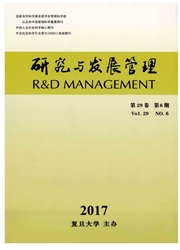

 中文摘要:
中文摘要:
基于1978—2011年粮食生产与消费的相关数据,在对粮食供给弹性和需求弹性估计的基础上,运用大国开放条件下农业研发的经济剩余模型对粮食产业技术进步的福利效应进行测算.结果表明:开放条件下农业技术进步导致粮食生产经济总剩余增加,粮食贸易总量的提高对农户福利的改善具有重要促进作用.贸易自由化背景下,农业技术进步的福利分配导致消费者剩余和生产者剩余的变动具有非均衡性,生产者剩余占经济总剩余的72.58%,消费者剩余占经济剩余的27.42%,福利分配偏好于生产者.
 英文摘要:
英文摘要:
It used the Akino and Hayami welfare effect model to analyze the welfare change caused by technological progress under the condition of big open economy. Based on 1978 -2011 grain production and consumption time series data of China, the grain supply elasticity and demand elasticity were estimated. The results show as follows : the techni- cal progress leads to the total welfare improvement under the big open economy. Moreover, technology advancements have a positive effect on producer welfare surplus, while consumer welfare surplus have a negative effect. Under the background of trade liberalization, the distribution of the agricultural technology progress effect brings about unbalanced changes in the consumer surplus and producer surplus, and producer surplus accounted for 72.59% of the total eco- nomic surplus. Therefore, welfare allocation prefers to the producers.
 同期刊论文项目
同期刊论文项目
 同项目期刊论文
同项目期刊论文
 期刊信息
期刊信息
